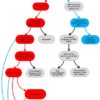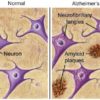Abstract Sufficiency of vitamin K, as K2 specifically, is gaining recognition as a requirement for long term health in many more areas of human physiology than previously realized. The breaking research is revealing a number of roles for vitamin K reaching well beyond coagulation to not only long term cardiovascular and skeletal health, but that […]





